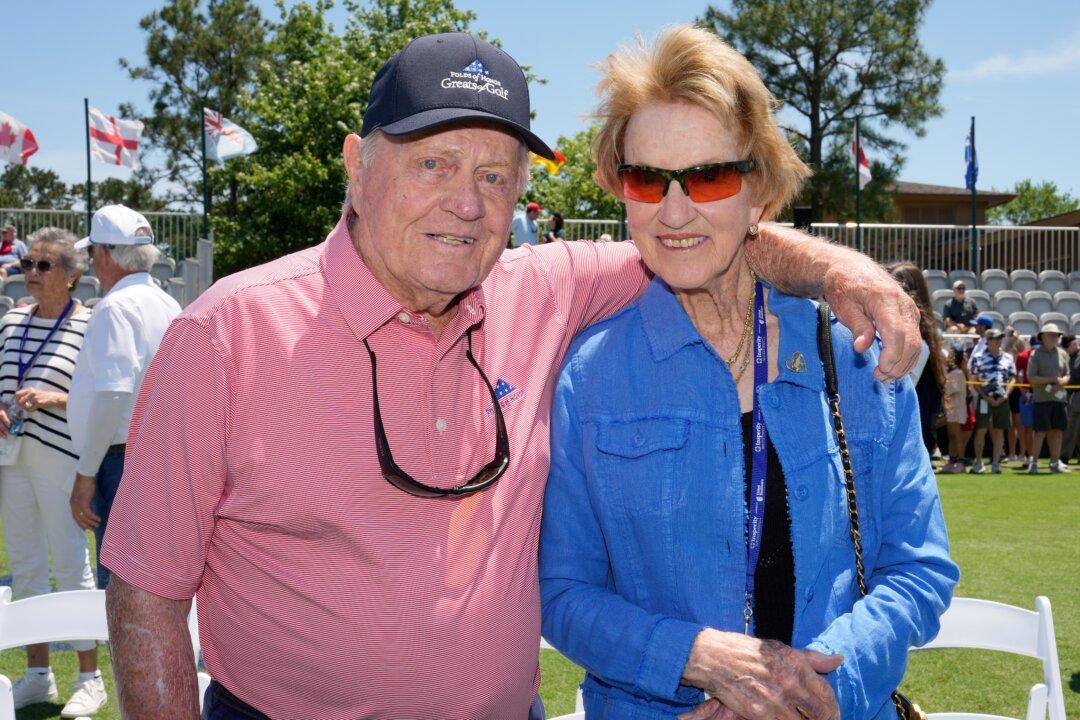With Tiger Woods not playing for the first time since 1994 and perennial favorite son Phil Mickelson disappearing for just the second time after missing the 36-hole cut, the storyline for the 78th Masters was in desperate need of someone capable in filling the gaping void.
Bubba Watson won his second Masters scoring a final round three-under-par 69 for a 280 four-round total and a three-shot win. The champion showed resolute focus in clearly demonstrating his first major win here in 2012 was not simply a lark—as some had opined. Plenty of top tier professional golfers can win a major—multiple major wins separate the masses into the elite few.
If there’s one thing that sums up Bubba Watson it’s his immense physical talent in hitting a stunning array of golf shots. His first win in at Augusta in 2012 came from manufacturing a 40-yard hooked pitching wedge on the first hole of sudden death—showing an art of pressure-packed shot-making few could even remotely contemplate under such intense pressure. The issue going forward at that time was could Watson develop a mental resoluteness in concert with his shot-making wizardry. Mentally drifting off during rounds and sometimes using his caddie as a verbal punching bag for ill-timed executions he caused, was a storyline Bubba needed to exorcise.
Even with winning the green jacket for the first time detractors had a field day with Watson going winless after his 2012 triumph at Augusta and not winning again until this past February when he won the Northern Trust event at famed Riviera.
Bubba’s second win at Augusta was less about flair but stepping up when needed—reminding Masters rookie and fast-rising star Jordan Spieth what producing timely shots is all about. Watson faced a birdie barrage through the first seven holes from the 20-year-old looking to be the youngest Masters champion ever. The most numbing came when Spieth blasted out of a front bunker at the par-3 4th from 25 yards away even after Watson’s approach rested roughly 6 feet away.
Others might have blinked. Not Watson. He calmly matched Spieth with his own birdie—and even after Spieth continued with consecutive birdies at the 6th and 7th—Watson stayed near enough with his own birdie at the 6th.
The event reached its critical juncture with the final two holes on the outward half. Watson smashed his tee shot allowing him to land his approach just off the back of the par-5 hole in two. Spieth made an error with his short third pitch shot and then inexplicably three-putted from 25-feet. Watson pitched close to the hole and sank the 4-foot putt for birdie. In a New York minute the lead went from Spieth two-up to even.
On the par-4 9th Spieth made a critical error in failing to get his approach over the false front and watched in agony as his par-putt from 6-feet barely missed. Watson again used his staggering power giving him a short wedge second shot. The approach landed 15-feet hole-high and after making the putt, he walked to the 10th tee now two shots clear—essentially game, set, and match.
Generally the back nine at Augusta for a Sunday final round produces epic drama—this time it was as flat as a ten-day old bottle of Coca Cola: no one in the field mounted anything worthy of an effort and Watson simply made sure he would not allow any self-induced blunders to provide hope for the hopeless.
Spieth would eventually tie for second with another Masters rookie—Jonas Blixt from Sweden—at 283 for the championship.
Watson’s second win in six attempts at Augusta matches what icons such as Arnold Palmer and Jimmy Demaret did in similar appearances.
Spieth smartly characterized Watson’s triumph simply by saying when Bubba is hitting the driver with total blending of power and accuracy along with a deft putting touch—no less than 11-one-putt greens in the final round—the net result is the left-hander looking at everyone else though a rear-view-mirror.
The six-time PGA Tour winner—born Gerry Lester Watson—provides a good bit of the swash-buckler style of golf Arnold Palmer made famous during his heyday. No question the pink-color PING driver is a unique personal touch and the fans enjoy rooting for him. For the 35-year-old it’s entirely conceivable another green jacket is attainable with other majors also on the radar screen. Bubba’s style of golf works well with what Augusta demands—superior length in concert with making critical putts at key moments.
World professional golf has been the domain of Tiger and Lefty for quite some time. This year’s Masters provided a snapshot of what the future is about. Watson showed maturation in the final round befitting a golfer comfortable within his own skin. For Spieth the future is certainly bright—it will be quite interesting the next time he contends in a major and how he deals with the hottest of bright lights. His post event interview showed total candor and a desire to get back into the hunt.
In roughly two months, the US Open will be played at Pinehurst 2 and Watson may find another venue that allows him to display his range of shotmaking. For a sport built on tradition and often time derided as being stuck in the past—you can’t beat a game in which the new Masters champion is simply identified by one word—Bubba!
M. James Ward, a member of Golf Writer’s Association of America (GWAA) and past member of Met Golf Writer’s Association (MGWA), has reported on golf’s grandest events since 1980 in a variety of forums.





